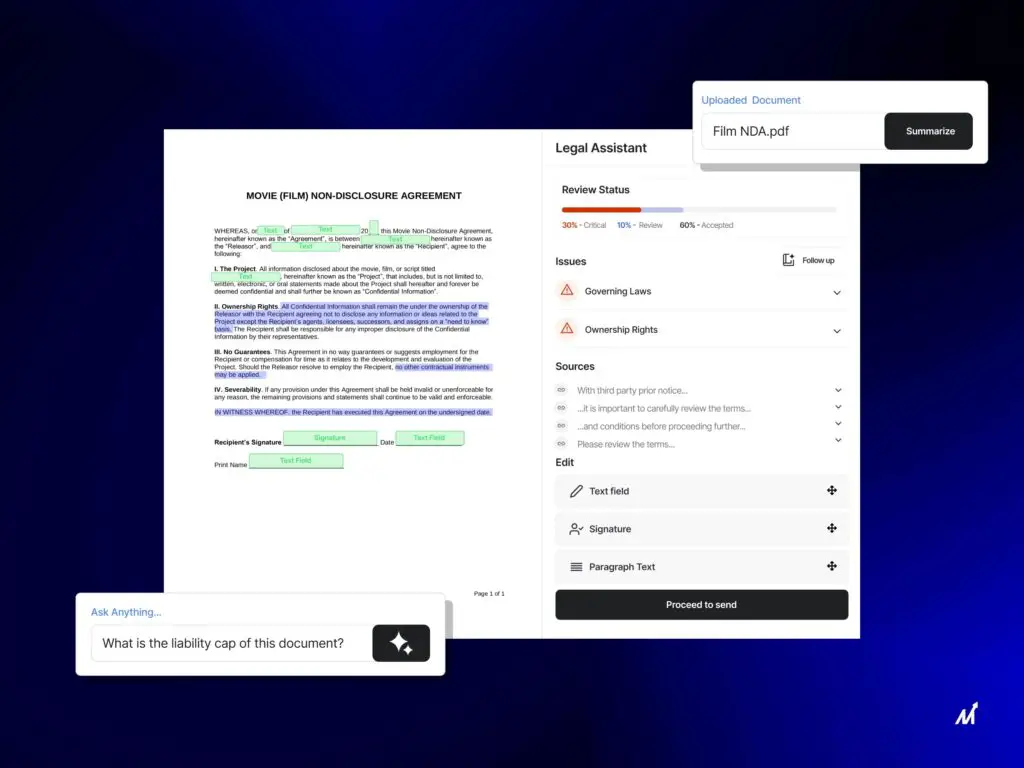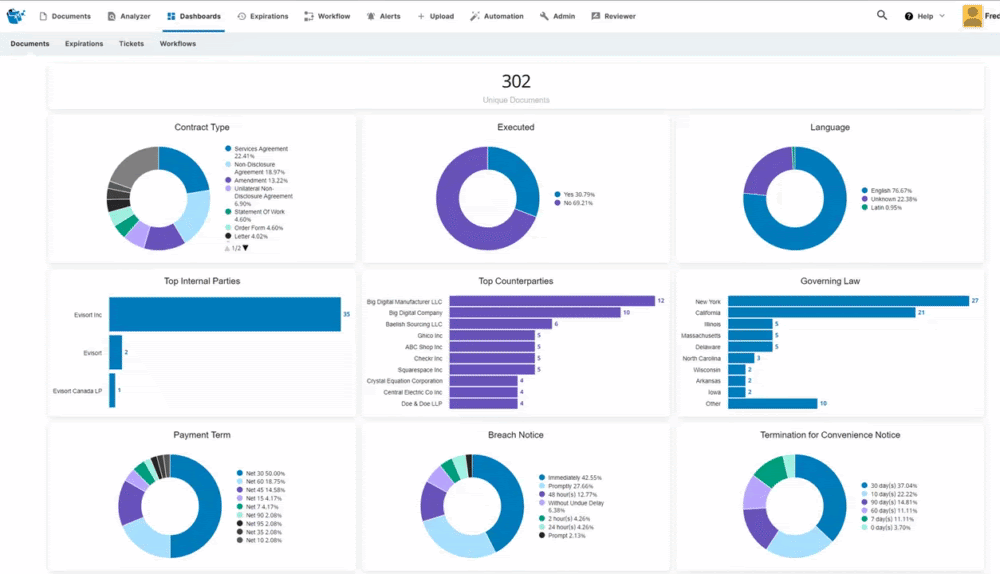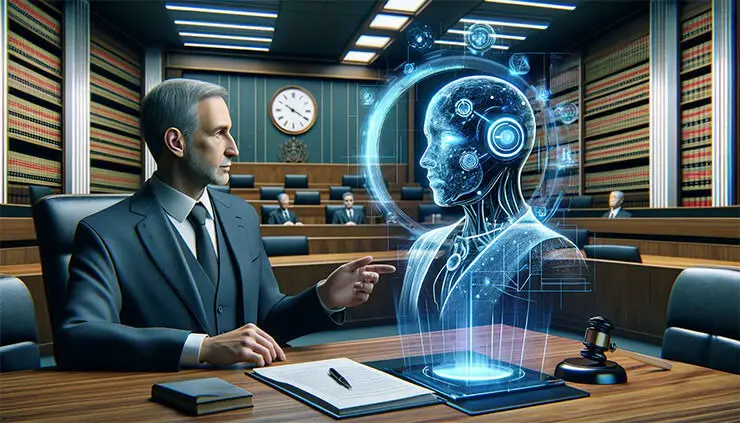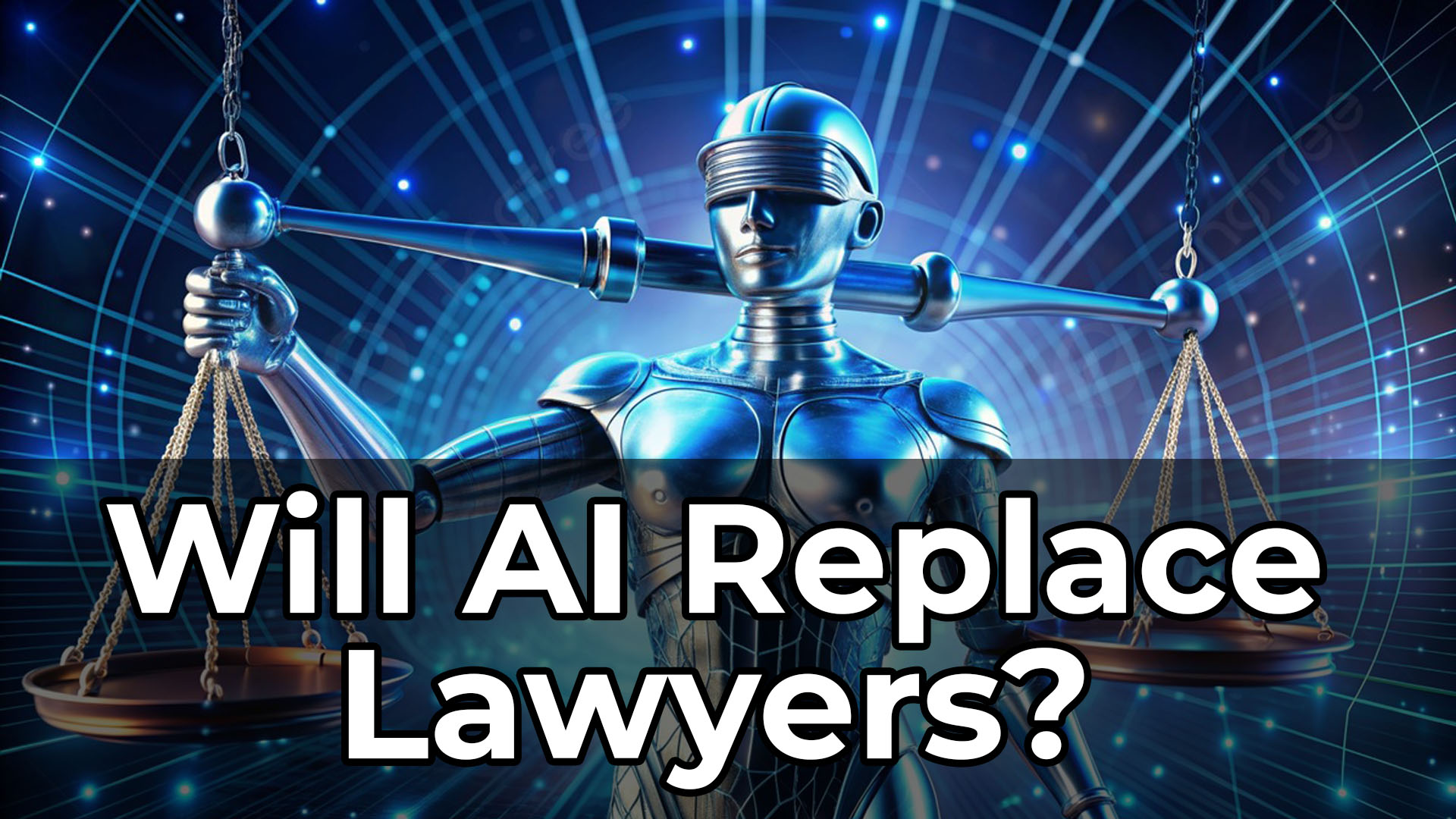AI legal assistants are rapidly reshaping the legal industry in 2025. With advanced tools capable of drafting documents, reviewing contracts, and even offering basic legal guidance, the rise of AI legal assistants is both exciting and unsettling. But does this mean lawyers will soon be out of work?
What Are AI Legal Assistants?
AI legal assistants are software systems powered by artificial intelligence that help perform legal tasks typically done by human lawyers or paralegals. They can:
- Analyze legal documents quickly
- Summarize case law and statutes
- Draft contracts, NDAs, and legal notices
- Answer basic legal queries
- Flag potential legal risks
These tools reduce workload, lower legal costs, and increase access to justice for many users.

Popular AI Legal Tools in 2025
Some of the most widely used AI tools in the legal sector include:
- Harvey AI: Used by firms for contract analysis and legal research.
- Casetext (CoCounsel): Provides AI-powered brief drafting and citation checks.
- DoNotPay: A legal chatbot that helps with minor disputes like parking tickets.
- Spellbook: An AI assistant built into Microsoft Word for contract drafting.
These platforms are especially useful for routine legal work and research.

Can AI Replace Lawyers Completely?
While AI legal assistants are powerful, they still lack critical human elements:
- Judgment and ethics
- Emotional intelligence
- Courtroom advocacy
- Creative legal strategy
AI excels at repetitive tasks, but complex litigation, negotiation, and client counseling still require a human touch. So, rather than replacing lawyers, AI is more likely to augment their roles.

Legal Industry Impact and Ethical Concerns
The legal field is adapting quickly to AI, but not without challenges:
- Data privacy risks with AI tools handling sensitive documents
- Bias in AI training data could lead to unfair outcomes
- Accountability: Who’s responsible if an AI gives wrong advice?
Law firms and policymakers must build ethical safeguards and transparency into AI adoption.
Conclusion: The Future of AI in Law
AI legal assistants are revolutionizing how legal services are delivered, making them faster, cheaper, and more accessible. But lawyers aren’t going anywhere—yet. The future lies in collaboration between human expertise and AI efficiency.
Want to chat? Contact us here!




